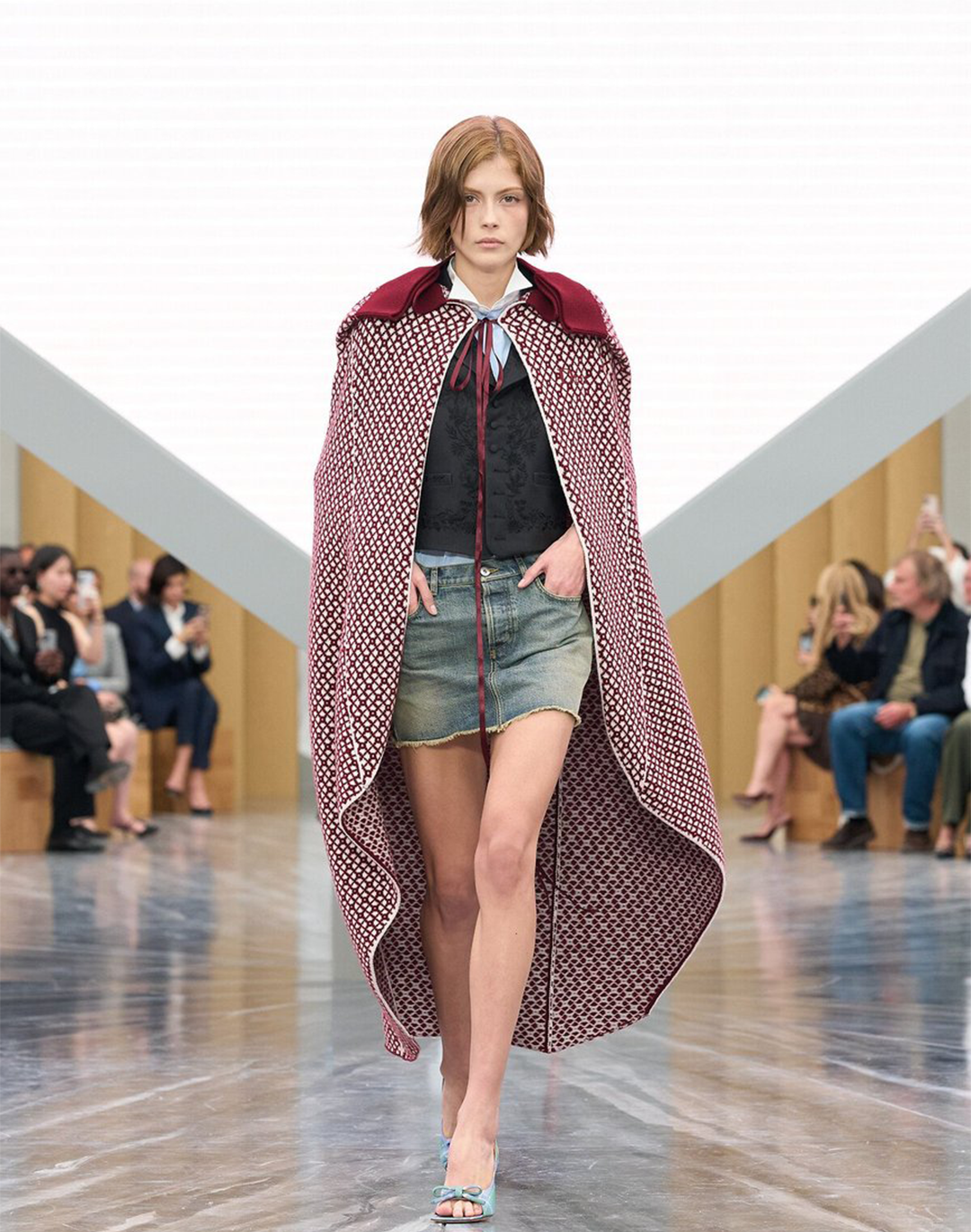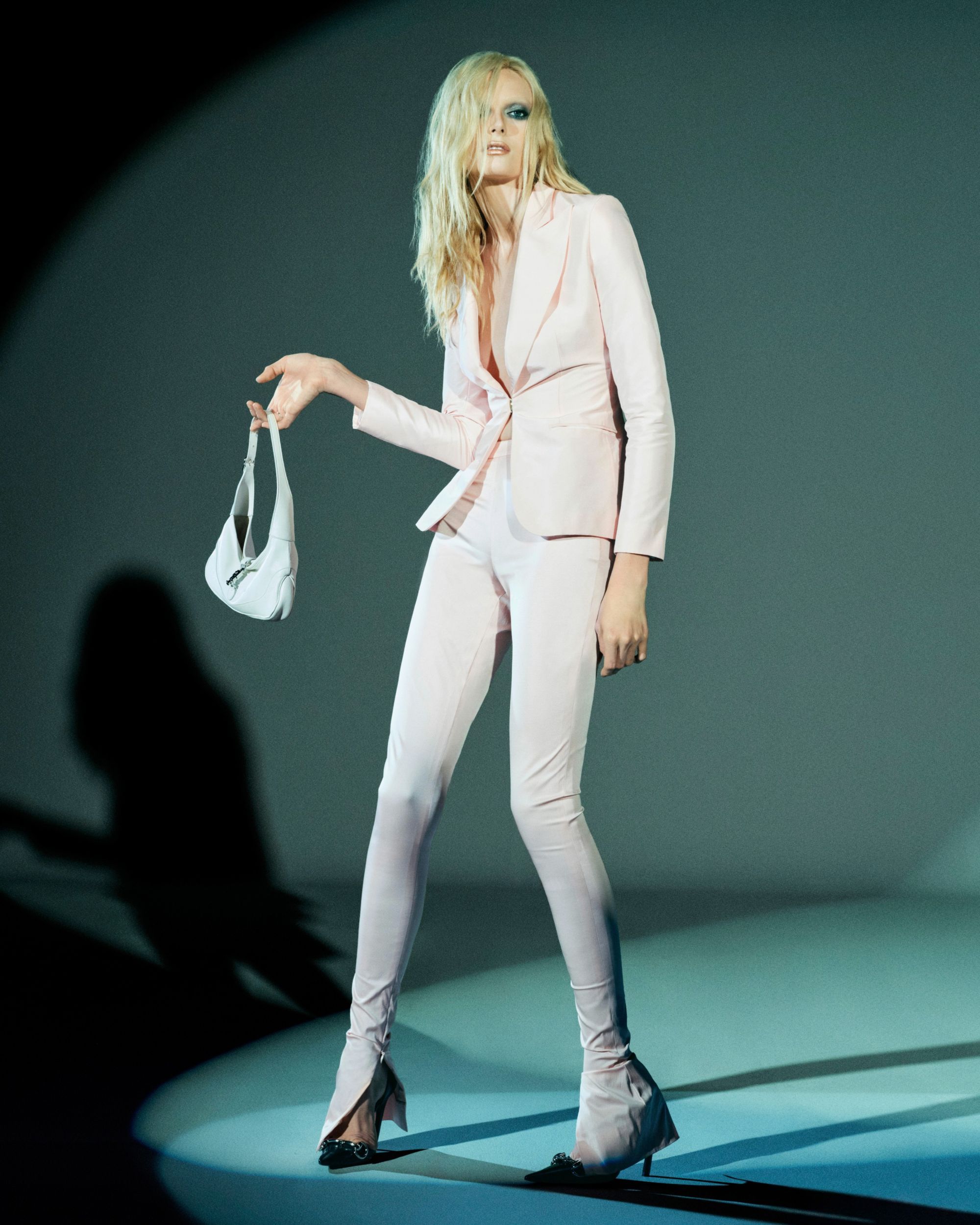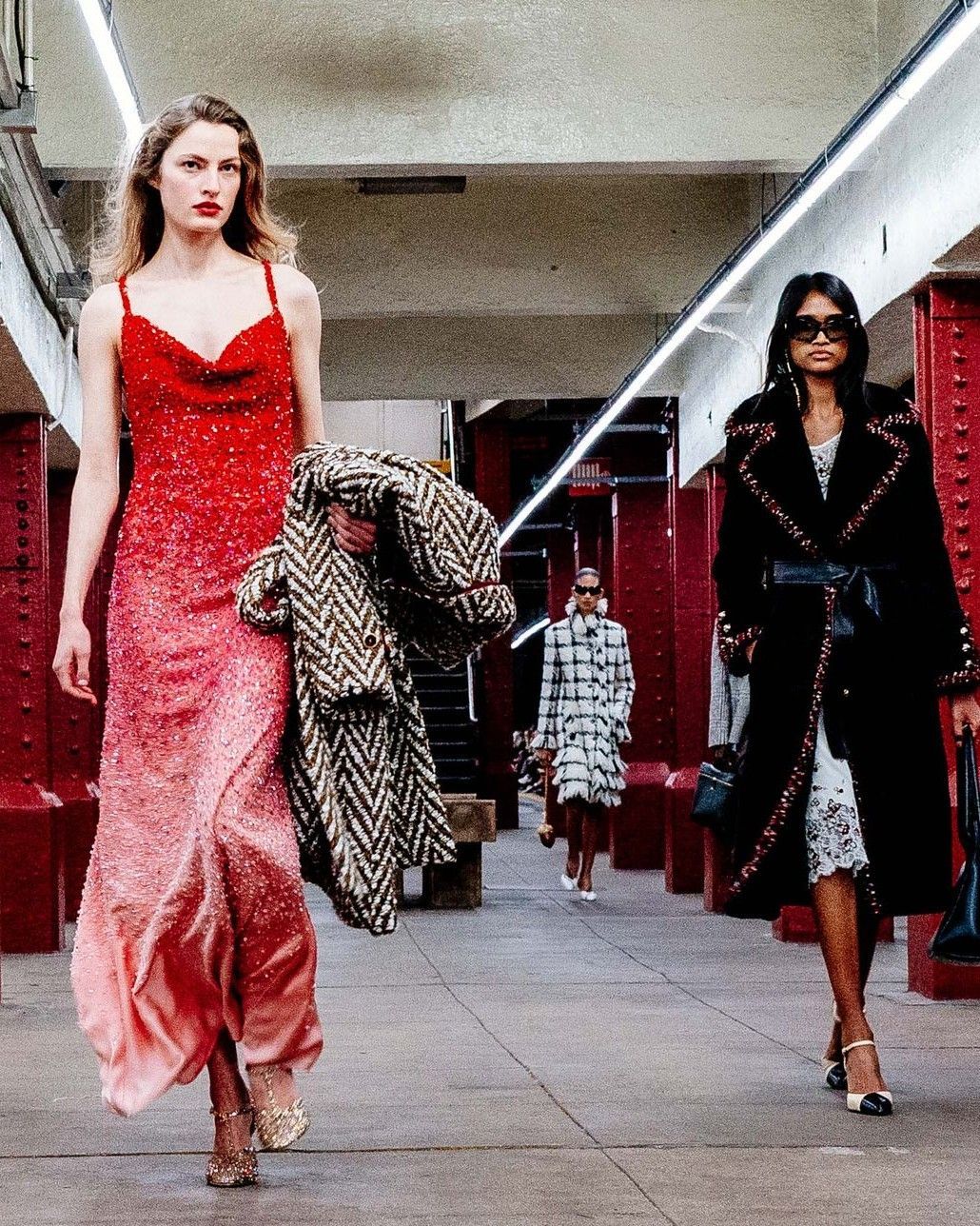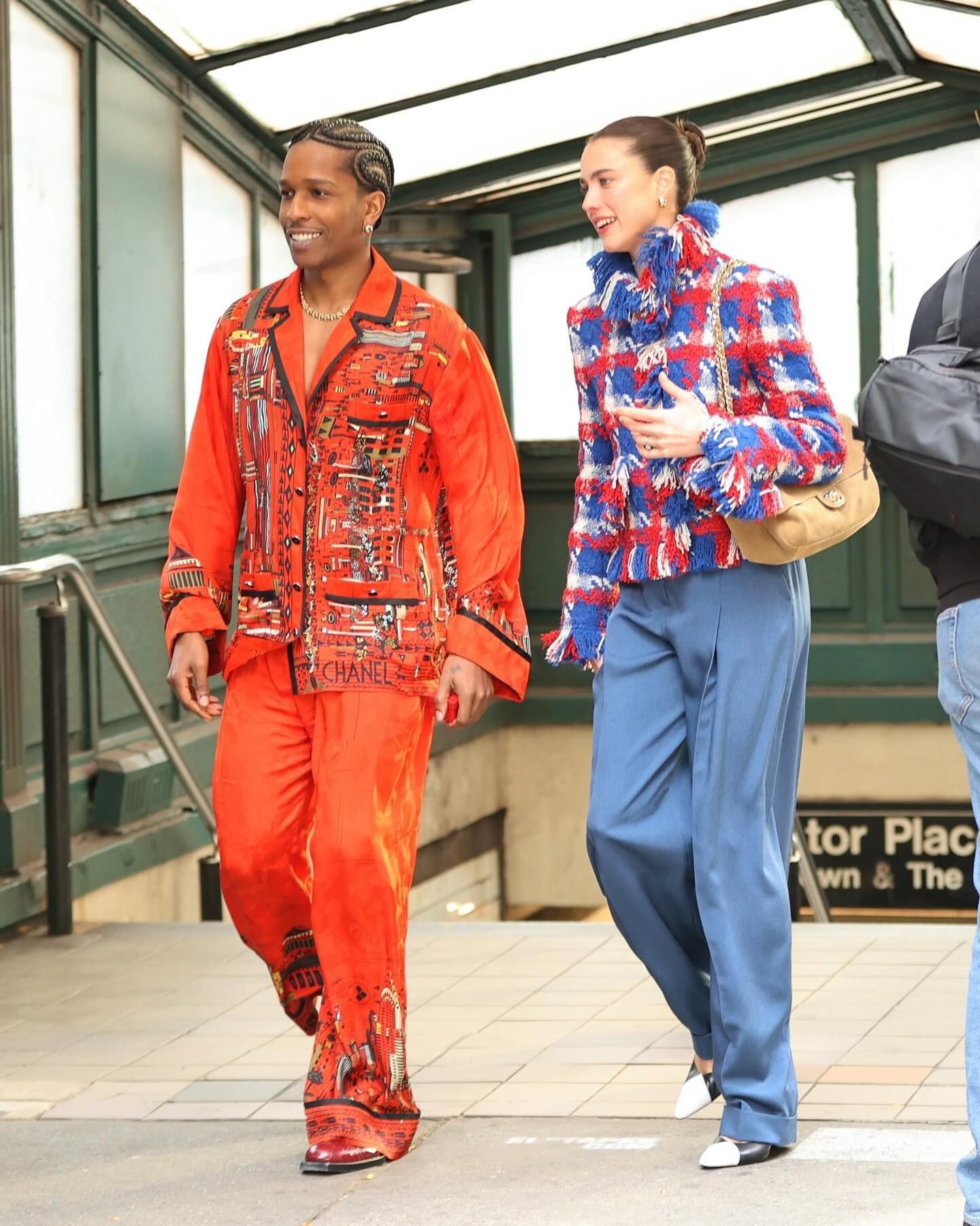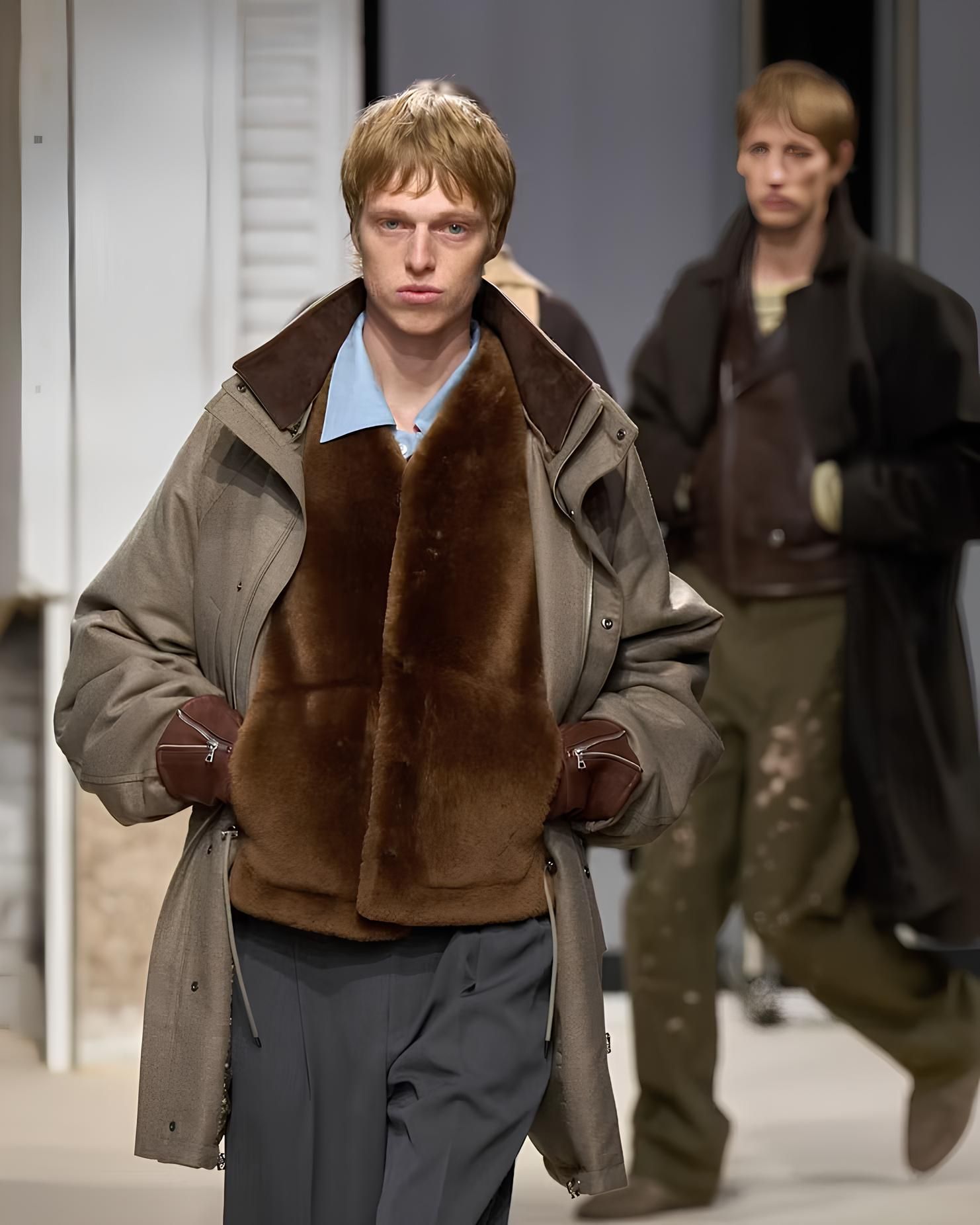
The oppression of opulence in ERD's SS25 Henri Alexander tells us about the genesis of the collection
The cage, a metaphor for the alienation that drives the individual in the bleak postmodern landscape, is a theme that has entered the imagination of Henri Alexander for some time now. A symbol that soon became an obsession in the mind of the Atlanta-born designer, who chose to transform the Parisian headquarters of Sotheby’s, the world's most renowned auction house, into the set of The Experiment, by installing a series of cages - a simplified version of the “stainless steel (synthesizer) prison unit” launched by the brand last March - to present the SS25 collection of Enfants Riches Déprimés. Between opulence and oppression, raw stitches, and period costumes, a borderline play of contrasts gave voice to the most explicit paradox, generating a sort of perverse short circuit: rich kids criticizing capitalism through clothes that only equally rich kids can afford. In a room with violet-toned marble walls and cream-colored carpet, Alexander said about the collection: «Everything for me is very personal. My collections are personal, my collections are emotional. They are about what I’m going through. I choose everything day by day as I work on the collection, I create something, add, modify, understand that I need something else. My obsession of the moment, whatever is obsessing me at that time, manifests in the collection».
While in their respective cages, with fictitious guards shaving the prisoners' heads, the collection alternated structured tailoring suits, Napoleonic jackets, vests, and loden coats with lamé sweaters and crotch-hugging shorts, accompanied by latex gloves and leg warmers, frayed ties, and leather bracelets. Leather, in all its facets, becomes the voice of this macabre exploration of forced assimilation, rejection, and silent oppression that underlies modern existence. Trench coats made by layering belts with jingling silver straps gave way to the fetishism of jumpsuits, a play of domination culminating in an homage to Steven Shainberg’s Secretary, in which a young Maggie Gyllenhaal, with both hands cuffed to a pole, could only use her lips to perform her office duties. To enrich the narrative or perhaps to confuse us further in a dense game of references, young baronets with deliberately emaciated faces strutted in their frayed pastel-toned culottes, a light blue dress paired with pointed slippers evoking Sofia Coppola’s punk court of Marie Antoinette. In addition, we found a cream silk dress with trompe d’oeil lingerie details, paired with the brand’s now-characteristic towering platforms. A smaller cage, this time worn on a model’s wrist, carried a real-life rat, before yielding the stage to Renata Litvinova, Russian actress and director, a well-known fashion figure and close friend of the Gvasalia brothers and Lotta Volkova, in a black silk draped gown.
When asked if there was a more literal and autobiographical meaning behind the extensive use of cages in constructing the narrative around the collection, Alexander laughed: «I think my brand is really based on repression, but I don’t necessarily do things for some hidden meaning. As an artist, that’s not my method. I have a feeling that drives me to do something, and I work solely on instinct. I’m sure there could be some sort of psychoanalytic exploration». One thing is certain: the designer has sublimated a past made of Swiss boarding schools and rehab centers into an imagery for “elite punks”, that over the years has been enriched with DIY biker jackets costing $7,000, sweaters with decadent illustrations of Lou Reed or characters from Hugo’s Les Misérables, torn tees emblazoned with the Le Rosey crest, and packs of Parliament Lights. Today, both the brand and Alexander himself have acquired a new awareness, pushing the design towards an increasingly elevated tailoring mastery and building a clear narrative around the themes that, from the beginning, have shone a spotlight on the project. ERD’s work questions the self-imposed slavery we maintain while pursuing autonomy and success, creating a collection that is a meta-reflection on the false idols that drive our frantic search for self-determination. After all, among his obsessions, Alexander doesn’t just mention cages, but their systematic negation, speaking of anarchy.









































































